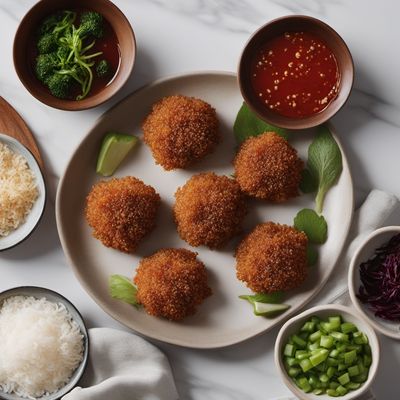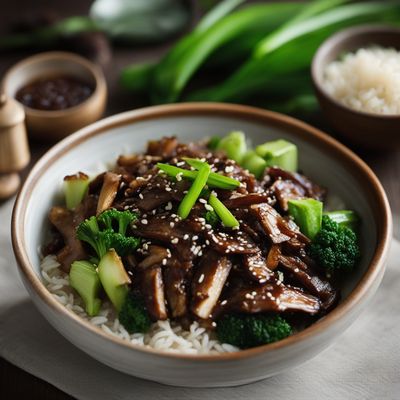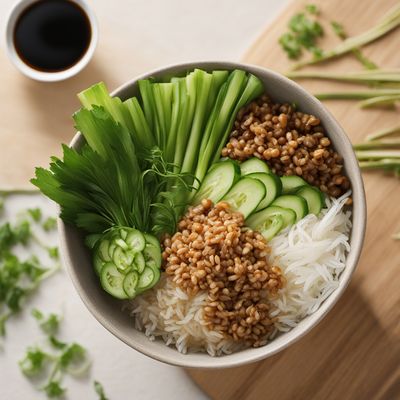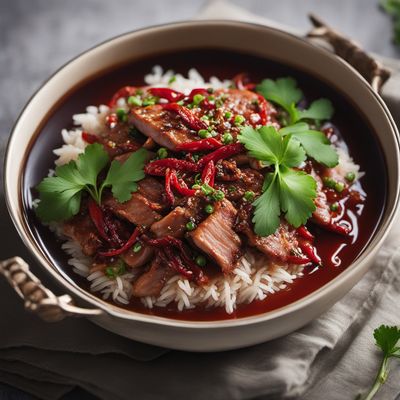
Ingredient
Turtle, snapping
The Mighty Snapping Turtle: A Culinary Delicacy
Snapping turtles are known for their large size, with some individuals reaching over 50 pounds. They have a dark, rough shell and powerful jaws, which they use to catch prey. The meat of snapping turtles is tender and has a mild, slightly earthy flavor. The texture is firm yet succulent, making it suitable for a wide range of cooking methods, including grilling, stewing, and frying.
Origins and history
Snapping turtles are native to North America and have a long history of culinary use in the region. They were traditionally hunted and consumed by Native American tribes, who valued them for their meat and used their shells for various purposes. In modern times, snapping turtles are still enjoyed as a delicacy in certain parts of the United States, particularly in the southern states. They are also considered a sustainable food source due to their abundance in the wild.
Nutritional information
Snapping turtle meat is a good source of protein and essential nutrients, including iron, zinc, and vitamin B12. It is relatively low in fat and calories, making it a nutritious choice for those seeking a lean protein option. However, due to its high cholesterol content, individuals with specific dietary restrictions or health conditions should consume it in moderation.
Allergens
Snapping turtles are not known to be allergenic, but individuals with shellfish allergies should exercise caution as there may be a potential cross-reactivity. It is advisable to consult with a healthcare professional if there are any concerns or known allergies.
How to select
When selecting snapping turtles, it is important to ensure that they are sourced from reputable suppliers or fishermen who follow sustainable practices. Look for turtles that are fresh, with clear eyes and a clean smell. Avoid turtles with any signs of discoloration, foul odor, or damage to the shell. It is also recommended to purchase snapping turtles from trusted sources to support responsible harvesting and conservation efforts.
Storage recommendations
To maintain the freshness of snapping turtle meat, it should be stored in the refrigerator at temperatures below 40°F (4°C). It is advisable to keep the meat in a sealed container or wrapped tightly in plastic wrap to prevent any odors from permeating other foods. Fresh snapping turtle meat should be consumed within a few days, while cooked leftovers can be stored for up to 3-4 days in the refrigerator.
How to produce
Snapping turtles are typically harvested from the wild, and their farming or cultivation is not common. Due to their size and specific habitat requirements, it is challenging for amateur enthusiasts to raise snapping turtles for culinary purposes. It is best to rely on professional suppliers or fishermen for sourcing this ingredient.
Preparation tips
When preparing snapping turtle meat, it is important to handle it with care and follow proper food safety practices. The meat should be thoroughly cooked to an internal temperature of 165°F (74°C) to ensure it is safe to consume. Snapping turtle meat can be used in various recipes, including soups, stews, and stir-fries. It can also be breaded and fried to create a crispy and flavorful dish. Marinating the meat before cooking can help enhance its flavor and tenderness.
Culinary uses
Snapping turtle meat is primarily used in regional cuisines in the United States, particularly in the southern states where it is considered a delicacy. It is commonly used in traditional dishes such as turtle soup, turtle stew, and turtle gumbo. The meat can also be incorporated into other recipes that call for poultry or seafood, adding a unique twist to familiar dishes.
More ingredients from this category
Recipes using Turtle, snapping » Browse all

Crispy Rice Balls with Korean Twist
Korean-inspired Crispy Rice Balls: A Fusion Delight

Indonesian-style Boribap with Spicy Peanut Sauce
Nasi Boribap: A Fusion of Korean and Indonesian Flavors

Chinese Aristocrat Shrimp Canapés
Imperial Delicacy: Chinese Aristocrat Shrimp Canapés

Omurice with a Twist
Savory Egg-Topped Rice Delight

Chinese Imperial Calentado
Imperial Harmony: A Fusion of Colombian Calentado and Chinese Imperial Cuisine

Bánh ướt lòng gà (Steamed Rice Rolls with Chicken Offal)
Savory Delight: Steamed Rice Rolls with Chicken Offal

Kongnamulbap - Korean Soybean Sprout Rice Bowl
Sproutful Delight: A Nutritious Korean Rice Bowl

Tonno del Chianti with a Spicy Asian Twist
Fiery Tuna Fusion: Tonno del Chianti with a Singaporean-Malaysian Kick

Japanese Stuffed Bell Peppers
Umami Delight: Savory Stuffed Bell Peppers

Presnitz - Italian Pastry Delight
Spiraled Sweetness: Presnitz - A Taste of Italian Pastry Mastery

Grilled Eurasian-style Steak
Sizzling Eurasian Steak Delight

Spicy Taro and Cinnamon Phở Sắn Quế Sơn
Fiery Fusion: Spicy Taro and Cinnamon Phở Sắn Quế Sơn
